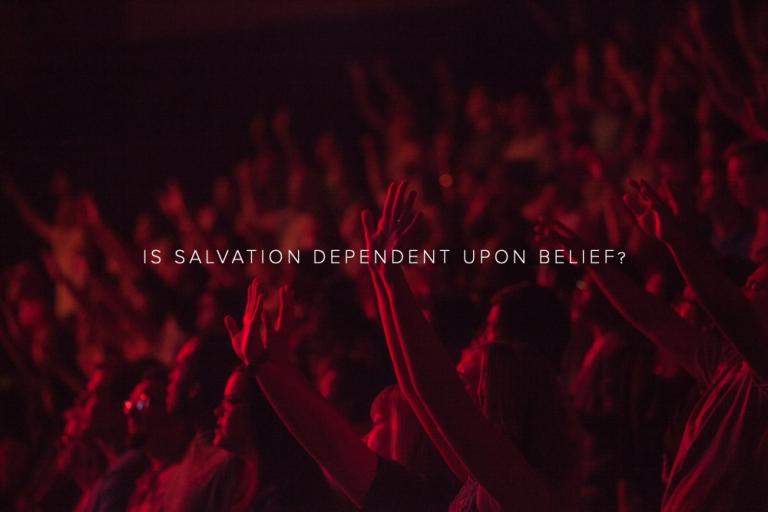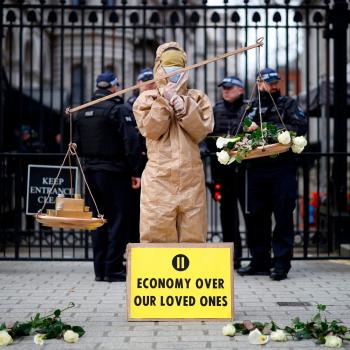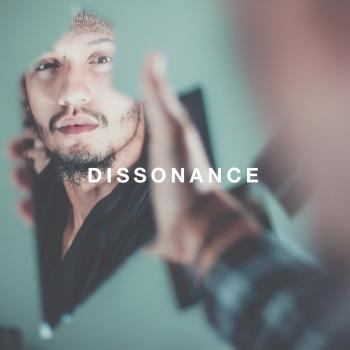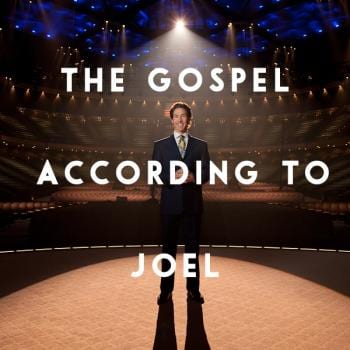
Is Salvation Dependent Upon Belief?
Richard Rohr: “It’s not correct to say Jesus is God.”
“ROHR: It’s not correct to say Jesus is God. Now, don’t run and report me to the bishop, all right? It’s not correct to say that.”
– Richard Rohr [1]
Richard Rohr, he’s not wrong…
Before you throw that electronic stone in the form of a comment or more passively, unfollowing me on Twitter, hear the both of us out…
Remember when we were younger and way too young to learn about “the sign of the beast” but yet, that one Sunday school teacher who’d be reading the Left Behind series decided it was their calling to then inform us, as children, of the “end times”…?
Right about then was when we all began to fear and think about death, the afterlife, and sin… I mean, can any of us remember how many times we repented and asked God into our hearts?
But, thankfully many of us can read this and chuckle, now having a healthy amount of distance, from these types of experiences… and, hopefully, this means we can also seriously confront the question of whether or not our salvation depends upon our belief.
And, please don’t hear me saying differently, I still believe in God… I just tend to empathize with the fact that there is a strong possibility [using the information we have today] that Sam Green could be right in saying that we are nothing but “biological puppets” living under an illusion of free will. And, that using a basic level understanding of physics, there is very little place for volitional control coming from us as homo sapiens, or rather biological puppets, that are made up of grey matter presently being governed by the laws of our worlds physics.
Or, did John Calvin say that first[5]…?

But, okay, so fully swinging it back around…
Rohr is combatting the idea that Jesus was only God. Period. He’s doing this by acknowledging Jesus is not only God but, He is also fully human.
He goes on to say in this PBS interview, “… Jesus is the union of the human and the divine. That’s different.” Continuing on, Rohr says, “I’ve been a priest 43 years. Most of the Catholics Christians I’ve met would for all practical purposes believe Jesus is God only, and we are human only. We missed the big point. The point is the integration, both in Jesus and ourselves.”
To take away the humanity of Jesus and to hone in on the idea that Christians must believe Jesus to be God misses the entire point of the incarnation – in that, Jesus became one of us for the sole purpose of being one with us.
He’s not so much questioning Christ’s divinity so much as he’s acknowledging Christ’s humanity [being unified with the divine].
And, furthermore, it goes to say that God’s love for us is not dependent upon our belief in Him.
What is Orthodox to Christianity?
Well, it depends…
It depends upon the who, the what, the when, the where and, yes, even the how… Again, I’m not writing a book here [2]; today it’s just a blog post; so, I’m definitely not going to address all of that.
But, what I will say, unequivocally, is that in today’s conservative evangelical non-denom version of church, orthodoxy… it has been completely redefined. Which is why, I think, many of us today get upset when informed about what’s really in the Bible.
I’d even go so far as saying that the very nature and character of God have been so far redefined that we can barely tell the difference between God and Santa Clause (that is, if they were to simply switch robes [3]).
White, bearded, and authoritarian older men…
The thing is, God is not any of that; quite literally, neither was Jesus (but, I talk more about that here & here).
That kind of God is actually not God – it’s capitalism’s version of Santa Clause (well, I mean, at least the version of Santa Clause depicted in that Tim Allen Movie)[4].
The point isn’t orthodoxy, doctrine, and/or possessing the right set of beliefs. Don’t get me wrong, what we believe about God matters… Doctrine, it matters. But, what I’m saying is that despite who we are and/or how we act or, don’t act, for this matter… God’s love for us does not waiver.
Not only would that make God controllable but, it would make Him a bit codependent…
“The emotionality of the creator of our universe does not waver by our personal behavior(s). In other words, God’s mood is not determined by our acceptance or rejection of Him (e.g. “God is very angry should you sin;” or “God is very happy when you did that good thing for a friend.”). That would make God, controllably codependent.”
Why does this matter?
If you’re poor or powerless and God depicts a controlling abusive authoritarian man you’re left wondering if the creator of the universe is on your side… As Christena Cleveland said in a recent Facebook post of hers:
“What if we took seriously the truth that God is not white or male? How would it alter our questions? How would it help us connect to our emotional experiences? What would it free us to admit to ourselves?
The late Black tennis star Arthur Ashe shared about his childhood experience with white male God: “Every Sunday, Arthur Jr. had to go to church, either First Presbyterian or Westwood Baptist, where his parents had met and where he would look up at a picture of Christ with blond hair and blue eyes and wonder if God was on his side.”
I’m like Arthur, Jr. Though I was raised by black parents and in black church spaces, I was implicitly taught by U.S. culture that God is a white man. And not just any white man — a powerful white man who presided over the institution of slavery and is worshipped by people who turn a blind eye when our President boasts of sexual assault. He’s the patron saint of white supremacy and toxic masculinity.
Every time we look at a U.S. coin or dollar bill, we’re reminded that it is “in God we trust.” We’re supposed to believe that God is on our side, that we don’t need to be afraid, that our lives matter, that our bodies matter. But we feel it in our bodies and in our emotional experiences. We are not safe. This God is not with us. When all hope seems lost, when we are afraid, when we are confused, the God on the money cannot be trusted. In this God we *can’t* trust.”
So, is our salvation dependent upon our belief?
Absolutely.
Just not in the way in which we were all taught…
The point of this isn’t to answer or explain what Orthodoxy is or isn’t… the point of this is to say that we’ve been taught what we believe only matters if it’s said to be “correct orthodoxy.”
What if the orthodox version of salvation wasn’t the same type of salvation Jesus was referencing in scripture? What if these rules and laws were the thieves stripping us of life?
What if salvation wasn’t an end goal what if salvation was to be had in the here and right now…?
If we always believe that salvation is some celestial place we’ll ascend to on our day of rest then how small are the odds we’d receive it here and now?












